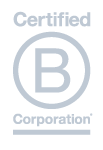Convincing your board of directors to consider investing in a Constituent Relationship Management (CRM) database software tool for your organization may be difficult when there might not be a budget for making such a transition, especially when your board may not be working ‘in the trenches’ and thus not feeling the pain of managing and pulling together data from a variety of sources.
Working for nonprofit organizations, it can be beneficial to take a more inclusive view of calculating your return on investment (ROI), looking at all of your resources: money, people, time and factoring in some risk analysis for good measure.
Here are a few tips for making the case for a nonprofit CRM in terms of ROI for your organization’s decision makers:
Money
Add up the costs of your current services: Are you paying multiple vendors for bulk email, online donations, event registration, or other data services? What does the cost of your online donations provider compare with the CRM’s payment gateway provider?
Compare how those combined costs add-up against monthly CRM subscription costs. You may say some of these services are “free” because your records are still under the threshold for purchasing the service, but project out what your costs will be when your donor list grows by 1K, 5K or 10K.
IT infrastructure: Whether your infrastructure consists of a Compaq PC and a dial-up connection or maintaining your own network and physical servers, you may enjoy cost savings by moving to a cloud-based CRM. The cost for server space, SSL certificates, licensing fees, etc. could all be maintained by your cloud-based CRM vendor.
People
Managing People: A cloud-based CRM will allow for greater connectivity and accountability for an organization. Staff, volunteers, and board can all sign-in to one account and be able to see communications, data tracking, campaign progress, and more. A web-based CRM also allows for greater flexibility for staff to work from outside the office..
When your CRM is being fully utilized and your staff is logging all of their touch points with your constituents, then managers and board can see how many follow-up calls were made, letters were mailed, and event registration reminders that were emailed. This holds your staff more accountable, gives them a place to make goals, and see if more touch points equates to more support and donations for your organization.
Staff turnover: We know that in the nonprofit field staff turnover is a common problem. What happens when the one person in the office who built your custom database leaves, or your Development person who “keeps everything in her head” jumps ship before your year-end campaign? A robust and fully utilized CRM can track all of your donor communications, interactions, engagement, participation, and more, so when a key person leaves your organization, all of your organizational history does not leave with them.
Time
Efficiency: Hours of staff time are wasted by tracking data in excel spreadsheets and in various applications to create lists or reports. Skilled managers are performing data entry that your constituents could be inputting themselves through a form that feeds data to your CRM. Look critically at your work and figure out how many hours could be saved by implementing a CRM and multiply that by staff pay.
Training and Support: Save time on teaching your staff where all of the various files live in your network and what work functions spread out among various applications. A CRM will consolidate this tracking and platform where data is stored and your staff will be trained to use one shared system. Also, a good CRM provider will offer free or low-cost training and support so that new hires and volunteers have access to training quickly to get up to speed with the system.
Risk analysis
Data Security: It’s 2:00 a.m., you wake with a start thinking – who is backing up your files and how? Is your donor information secure?
Investing in a reputable cloud-based CRM will outsource all of these concerns to their own IT professionals. A cloud-based CRM is frequently and consistently backing up your data, so that if you hardware fails – your data is still safe.
Measurement and Planning: How do you measure ROI when you do not have a CRM that pulls all of your fundraising and engagement data into one place? A nonprofit CRM will house all of your data in one spot and allow you to query, compare, and report on fundraising and engagement. Data Analysis will allow your board to better measure ROI, see weaknesses, make adjustments to their fundraising and marketing plans, ultimately leading to cost savings and improved results.
Count the Ways
These are but a few of the potential resource savings a nonprofit can anticipate with implementing a robust nonprofit CRM. Your board is diverse and may be swayed by different arguments – but you can count on all of them being compelled to consider a nonprofit CRM when demonstrating a CRM’s ability to extract some analysis of your data, giving management the tools to measure ROI, and do long-range planning with greater efficacy.


 thedatabank, gbc is technology for change, and we walk the talk.
thedatabank, gbc is technology for change, and we walk the talk. 

